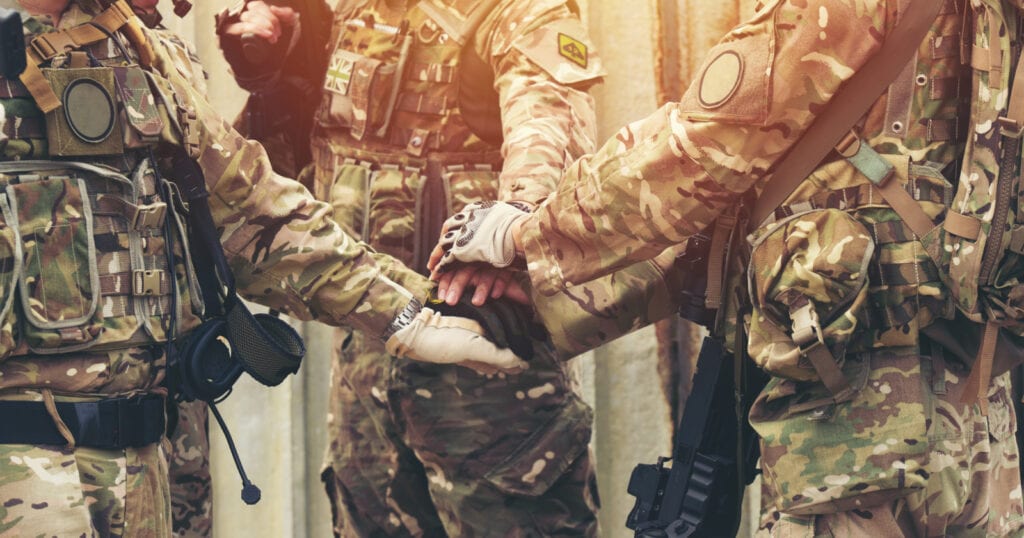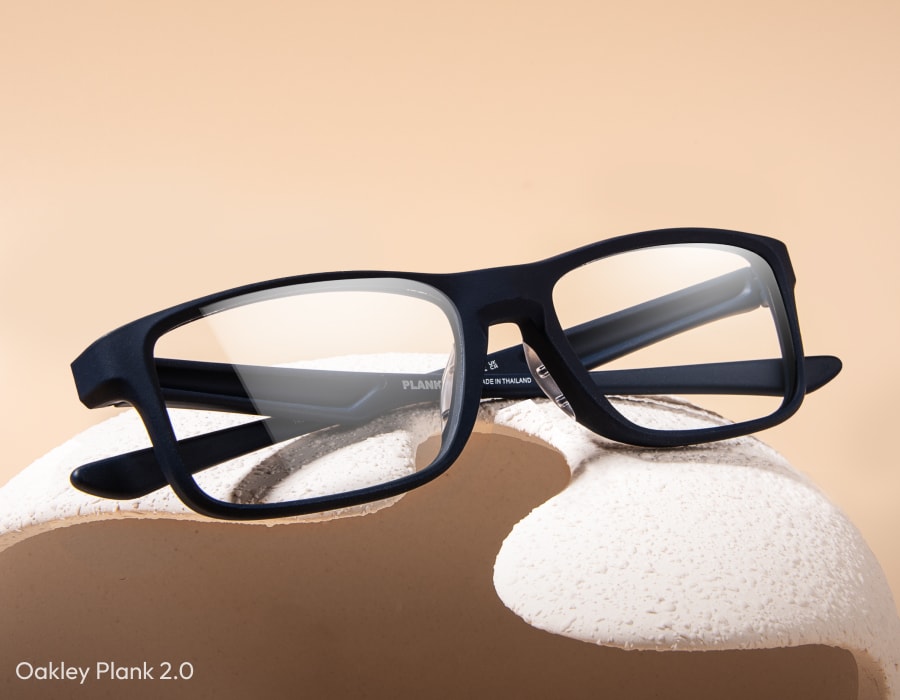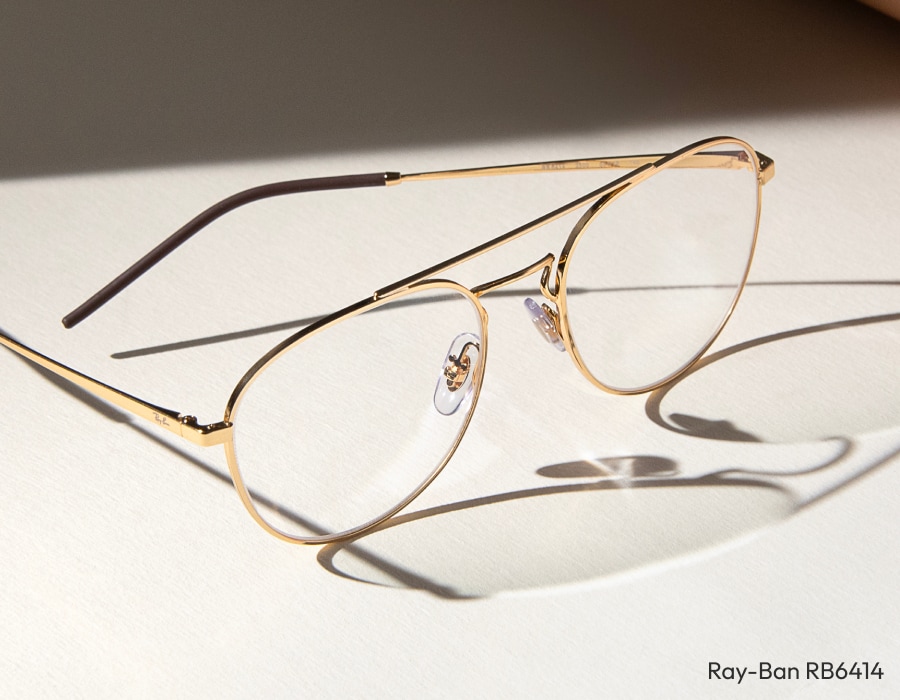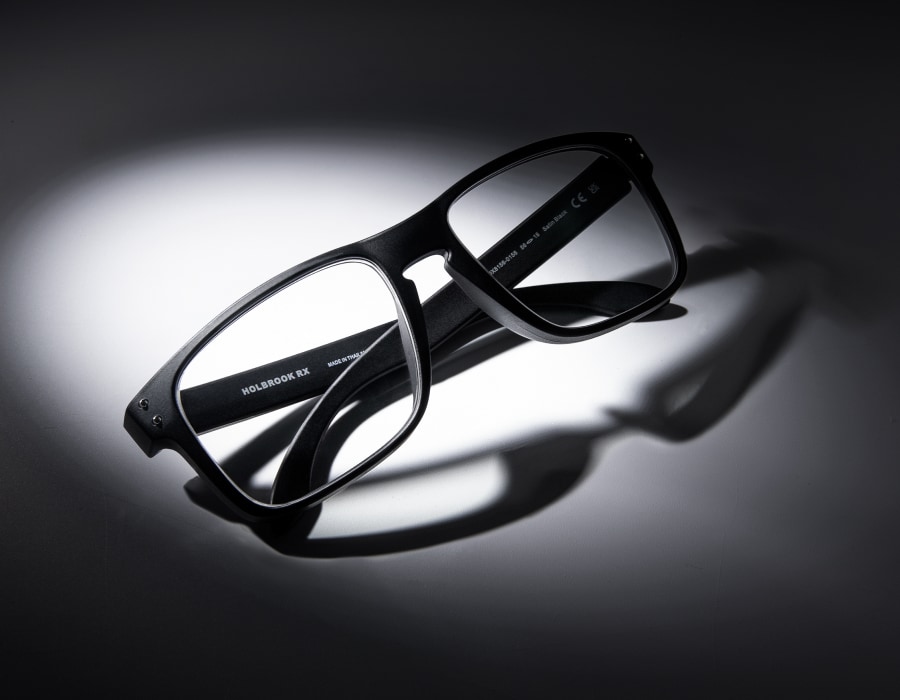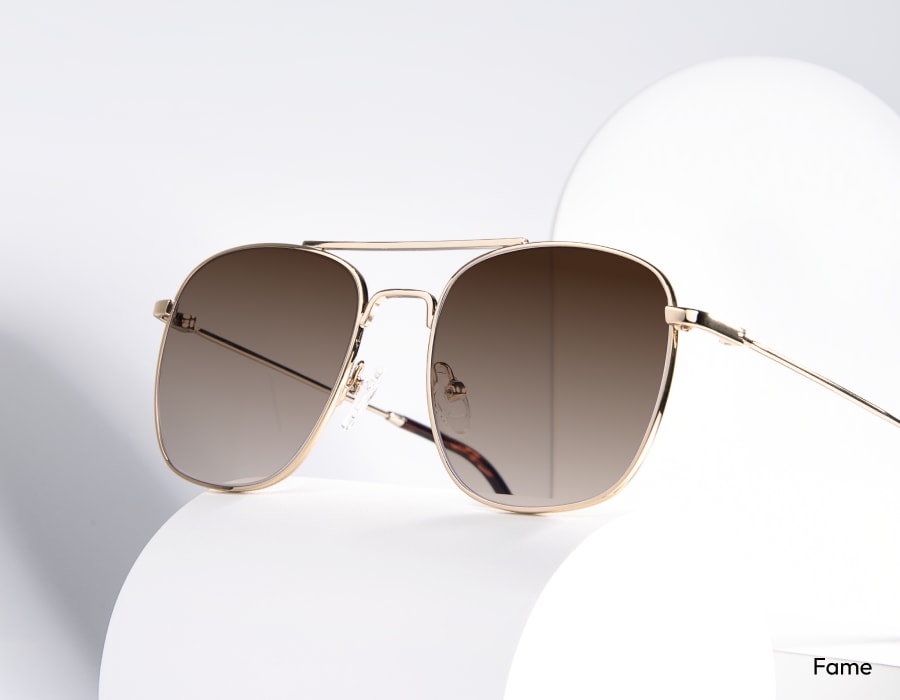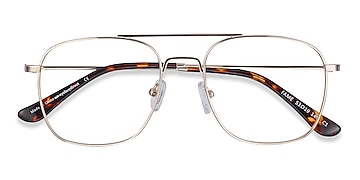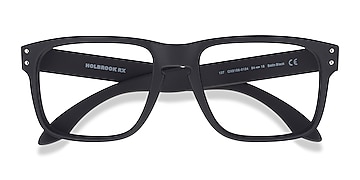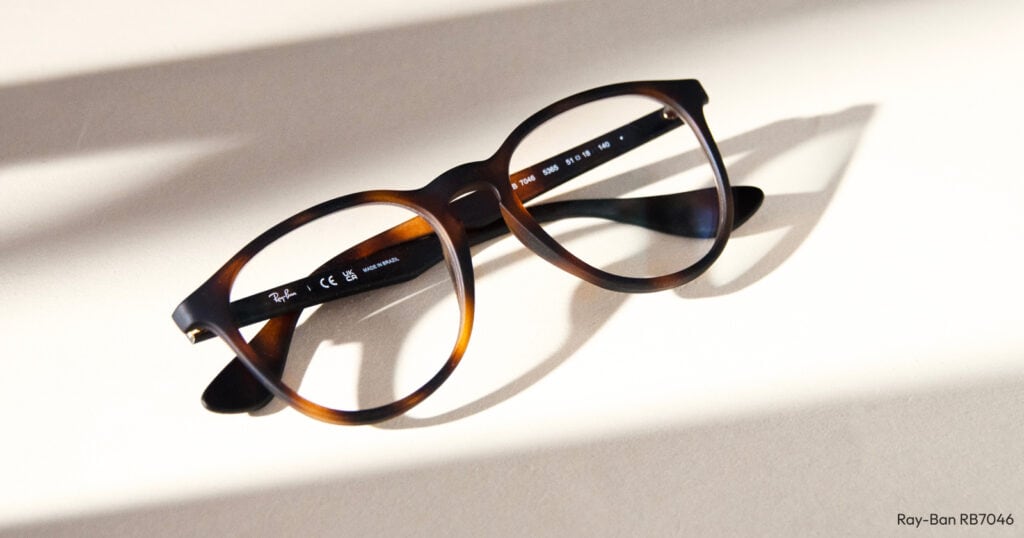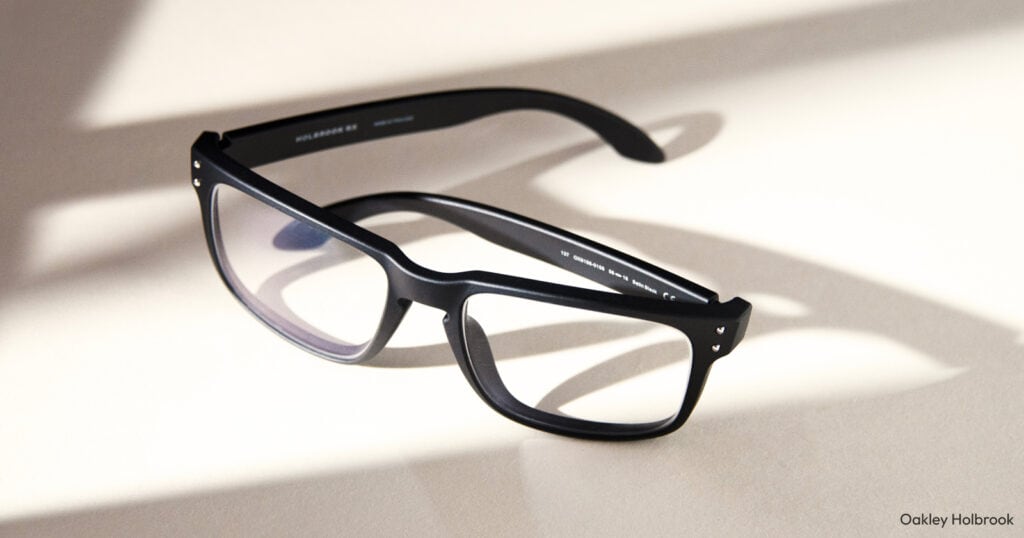If you’re considering a career in the military, you might wonder if wearing prescription glasses could prevent you from enlisting or performing certain duties or jobs.
While you can be in the military with glasses, certain restrictions and requirements apply. These can also vary by military branch and specific job, such as pilots, special forces, and other roles.
Read on to learn more about military glasses and vision requirements for each branch.
Military Vision Requirements
All applicants must meet certain military vision requirements to qualify for service. These are assessed during the enlistment process through an eye exam and a vision test.
Basic standards require that all service personnel have at least 20/40 distance vision using both eyes, with or without vision correction. (This means someone can see at 20 feet what a person with normal vision can see at 40 feet.) Further vision requirements per branch and specific roles are detailed below.
Army Eyesight Requirements
Army eyesight requirements dictate that all service members have visual acuity correctable to at least 20/40 in each eye. Some jobs have additional, stricter standards, including:
Army Special Forces
- 20/70 vision or better in both eyes without correction
- Vision must be correctable to 20/20
Army Rangers
- At least 20/40 vision in each eye
Army Pilots
- Vision must be correctable to 20/20 in both eyes
Navy Eyesight Requirements
General Navy vision enlistment requirements include the following:
- Vision must be correctable to at least 20/40 in your better eye
Certain jobs within the Navy have additional, stricter vision requirements, including:
Navy SEALS
- At least 20/40 vision without correction in your better eye
- At least 20/70 vision without correction in your other eye
- Vision must be correctable to 20/25
- No color blindness allowed
Navy Divers
- 20/200 vision or better in each eye without correction
- Vision must be correctable to 20/25
- No color blindness allowed
Navy Pilots
- 20/40 or better in both eyes without correction
- Vision must be correctable to 20/20
Explosive Ordnance Disposal (EOD) Techs
- 20/200 vision or better in both eyes without correction
- Vision must be correctable to 20/25
- No color blindness allowed
Marine Corps Eyesight Requirements
To join the Marine Corps, applicants must have:
- Vision must be correctable to at least 20/40 in your better eye
Certain roles within the Marine Corps have additional vision requirements, including:
Marine Recon
- 20/200 vision or better without correction
Marine Pilot
- 20/40 vision or better without correction in both eyes
- Vision correctable to 20/20
Air Force Vision Requirements
Air Force vision requirements can vary depending on your career path. General enlistment requirements dictate that your visual acuity must be correctable to at least 20/40 and your vision prescription must be no stronger than + or – 8.0 diopters (D).
However, applicants for other jobs must meet additional vision criteria:
Air Force Pilots
- Uncorrected distance vision of 20/70 or better in each eye
- Uncorrected near vision of 20/30 or better in each eye
- Vision must be correctable with glasses to 20/20
- Normal color vision
Additional refractions and astigmatism standards must be met for eligibility. Corrective vision procedures (such as LASIK) may also prevent applicants from becoming pilots or filling other specialized roles.
Air Force Pararescue
- Uncorrected distance vision of 20/100 or better
- Distance vision must be correctable to 20/20
- Uncorrected near vision of 20/50 in the better eye
- Near vision must be correctable to 20/20
Coast Guard Vision Requirements
Coast Guard vision requirements are determined by role. They include:
Mariners
- Correctable vision of 20/40 or better in one eye
- Uncorrected vision of 20/200 or better in the same eye
- Must pass a color vision test
STCW Endorsement
Standards of Training Certification and Watchkeeping (STCW) endorsement of international maritime safety standards requires the following:
- Correctable vision of 20/40 or better in both eyes
- Uncorrected vision of 20/200 or better in both eyes
Specialized roles
Applicants for roles such as tankerman, radio officer, mobile off-shore drilling units (MODU), and engineering must meet the following vision standards:
- Correctable vision of 20/50 or better in one eye
- Uncorrected vision of 20/200 or better in the same eye
- Must be able to distinguish between blue, red, yellow, and green
Regulations for Glasses in the Military
Army glasses regulations regarding prescription glasses and sunglasses are as follows:
- Glasses must be conservative in appearance.
- Frames and lenses must not be trendy in style or color.
- Frames and lenses must be free of designs, lettering, and other embellishments.
- Frames and lenses must not be overly large or small.
There are further army sunglasses regulations regarding where and when they can be worn.
Navy Glasses Regulations
In this branch of the military, glasses may be worn if they are conservative and do not detract from the uniform. They must also comply with the following regulations:
- Frame colors must be black, brown, silver or gray, navy blue, gold, or clear.
- Lenses must be clear.
- Transitions lenses are allowed except during military formations. When these lenses are permitted, they must be darken to brown, dark green, dark gray, or black in color.
- Other lens tints may be allowed when medically authorized or prescribed.
Navy sunglasses regulations state that tinted sunglasses can be worn except in military formations. They must be conservative and not detract from the uniform. Further specifications include:
- Frames must be solid and in a neutral color, such as black, brown, tan, dark gray, silver/gray, navy blue, dark green, or gold.
- Lenses must not be mirrored and should be dark green, dark gray, brown, or black.
- Logos on the frames or lenses must be small.
Marine Corps Glasses Regulations
Marine Corps service members must adhere to the following eyeglass regulations:
- Eyeglasses must be conservative in style and appearance.
- Manufacturer logos on the frames or lenses should be small and discreet.
- Eyeglasses must not have ribbons, chains, or bands (although conservative retainers are allowed).
Marine Corps sunglass regulations are as follows:
- Sunglasses must be conservative in appearance.
- They should be free of embellishments.
- They may not be worn while in formation without specific approval.
- If approved to wear in formation, sunglass lenses must be tinted black, brown, or green, or made of photochromic material.
- They may not be worn indoors unless they are photochromic lenses that transition back to clear inside.
Air Force Glasses Regulations
Air Force glasses regulations apply to both eyeglasses and sunglasses:
- They may not be worn anywhere but over the eyes.
- They must be conservative in design and appearance.
- Frame color must be brown, black, gray, dark blue, gold, silver, white, or clear.
- Brand logos on the frames or lenses must be small.
- The lenses must be conservative, transparent, lightly tinted, photochromic, or mirrored.
Sunglasses are not permitted in formation (including those with darkened photochromic lenses) unless they’re prescribed or approved for medical reasons.
Coast Guard Glasses Regulations
In this branch of the military, glasses are permitted if they meet the following requirements:
- Frames and lenses must not be of a design that causes distraction.
- Sunglass frames must be solid black, navy blue, or made of silver or gold wire.
- Sunglass lenses must have a brown or black tint (mirrored lenses are not allowed).
- Sunglasses may not be worn in formation unless medically prescribed or authorized.
- Frames and lenses must not be overly large or small in a way that detracts from the uniform.
- Glasses and sunglasses may not be worn on the top or back of the head.
Can You Wear Contacts in the Military?
Contacts can be worn in certain situations. However, like with military glasses requirements, the rules and regulations for wearing contacts are regulated by each branch.
Army Contacts Regulations
Contact lenses may be worn in uniform. However, they must not be colored or tinted (except for opaque lenses used for treating eye injuries) and they cannot alter the iris’s shape. Wearing contact lenses is not allowed during deployment.
Navy Contacts Regulations
Tinted contact lenses in natural-looking colors (such as brown, green, and blue) are allowed.
Marine Corps Contacts Regulations
Wearing contact lenses in uniform is permitted as long as they are clear or of a natural eye color. They must not alter the pupil’s shape.
Air Force Contacts Regulations
Contact lenses may be worn in uniform. However, they must be clear and must not alter the shape or appearance of the eye. Colored contacts are not allowed.
Coast Guard Contacts Regulations
Contact lenses are permitted, but they may not detract from the overall appearance of the uniform.

Find Your Next Pair of Glasses
In the military, prescription glasses can generally be worn if they are conservative and do not detract from the uniform. To learn more about military glasses regulations and vision eligibility criteria for a specific branch, reach out to one of their recruiters.
Whether you’re in the military or not, Eyebuydirect has a wide selection of prescription sunglasses and eyeglasses to choose from. We also offer a military discount as a token of our appreciation for those who serve. Browse our collections today to find your next perfect pair.

